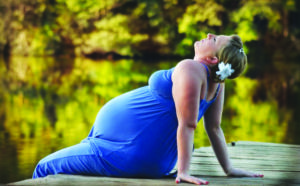News
News in Digest: Like Shania said: Man, I feel for you, woman
This article is more than 8 years old.
No, nothing to do with #metoo, more the alarmingly selective way of reporting statistics

This survey about pain thresholds found that ‘parents’ are badasses (photo: Pixabay)
It’s funny how we only learn the gender breakdown when it suits the media or the survey takers.
There’s a tendency when it’s a negative finding – something men are more guilty of than women, for example – to lump the sexes together. But if women are the biggest culprits – like in a recent report about ‘mothers’, not ‘parents’, abandoning their babies – then it’s open season.
Seeing red on the road
Take road rage. According to a new Megafon survey for the Vejdirektoratet road directorate, 40 percent of Danish drivers are most prone to getting annoyed in traffic – particularly by drivers hogging the fast lane.
Some 89 percent of the respondents believed they drove safely.
The second most annoying environment was shopping, which was cited by 21 percent, with workplaces scoring 17 percent, friends and family 15 percent and other environments 7 percent.
Ode to the cat woman
In contrast, Metroxpress could barely contain itself when a YouGov survey revealed that 21 percent of women felt closer to their pets than their own parents and siblings. The finding that 23 percent of those aged 18-29 felt the same barely registered.
“You get unconditional love from your pet,” Jill Brynit, a psychologist affiliated with the University of Southern Denmark who may or may not have been recently dumped, told the newspaper.
“The more egotistical side of our relationship with animals means we have perhaps become so self-sufficient that we really can’t be bothered with the demands of others.”
Daddy’s not home
There’s no hiding for men when it comes to the average amount of paternity leave they take when compared to their Nordic brothers – an average of 31 days in 2015, compared to 297 days taken by mothers.
Danish fathers take just 10 percent of the total parental leave available – a long way behind their counterparts in Sweden and Iceland, who take around 30 percent.
The government has launched a new campaign, ‘Orlov – tag det som en mand’ (Paternity leave – take it like a man), to encourage men to take more time off.
Uni, marry, die at home
In other survey news, it has been revealed that university applicant numbers have risen from 12 percent of school leavers in 1980 to almost 50 percent today, although the dropout rate jumped from 5.6 percent in 1980 to 13 percent in 2005.
The number of Danes dying in hospital or a hospice over the last 35 years has fallen from 54 to 43 percent as more are dying at home, in an old people’s home, or other place outside hospital, according to figures obtained by Momentum.
Nearly 30 percent of Danish families with children are single parent units – the highest rate in Europe according to Eurostat. Some 54 percent of the single parent families in Denmark have just one child, and 36 percent have two.
The number of Danes getting married increased in 2016 for the third consecutive year. In total, almost 31,000 couples tied the knot – about 1,900 more than was the case in 2015.
And finally, the average age in Denmark has increased from 38.2 to 41.3 over the past 30 years, the most common causes of death for men and women are cancer and cardiovascular disease respectively, and 94,365 people immigrated to Denmark last year, with most coming from the US, Romania, Germany, Poland and the UK.










































